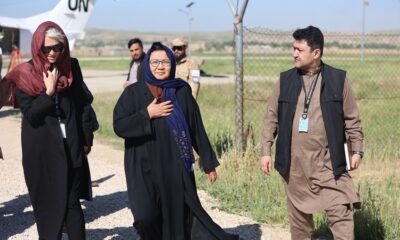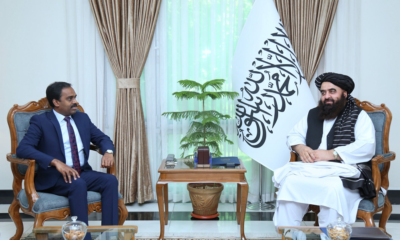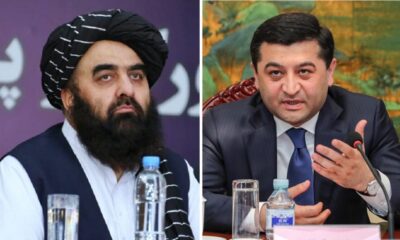Latest News
Taliban issues order forbidding excavation and trade of artifacts
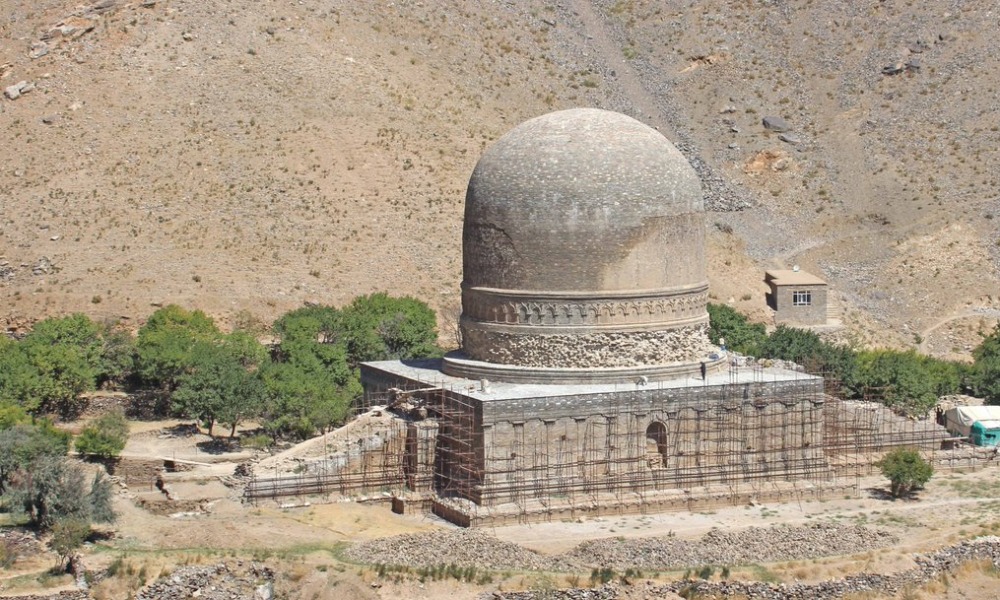
The Taliban said Sunday it has instructed all its members including its “military units” to protect and preserve Afghanistan’s heritage sites and artifacts and to refrain from excavating and selling relics either in the country or internationally.
In a statement published on the group’s website, the Taliban stated it has instructed: “all officials, commissions/departments chiefs, provincial and district governors, military unit and group commanders, the Mujahideen and all compatriots” to adhere to the order.
The group stated: “As Afghanistan is a country replete with ancient artifacts and antiquity, and that such relics form a part of our country’s history, identity and rich culture, therefore all have an obligation to robustly protect, monitor and preserve these artifacts.”
According to the statement, no one may excavate, transport or sell, and all Taliban members “must prevent the excavation of antiquities and preserve all historic sites like old fortresses, minarets, towers and other similar sites so to safeguard them from damage, destruction, and decay.”
The Taliban said its Commission for Cultural Affairs is tasked with the duty of guarding and preserving ancient artifacts, and that all other branches of the group including their “military commission, governors and other Mujahideen must coordinate and cooperate with the Cultural Commission in protecting these artifacts.”
The group stated that all trade, contracts, and transport of artifacts are forbidden with immediate effect.
“No one should try to disturb such sites or think about using them for profit,” the group stated.
The Taliban has however in the past been accused of plundering and destroying ancient collections and heritage sites.
In 1992, the Taliban reportedly looted the National Museum of Afghanistan which experts claim resulted in the loss of up to 70 percent of the 100,000 artifacts stored in the facility.
In August 1998, the Taliban went on to destroy the Puli Khumri Public Library.
The library contained over 55,000 books and old manuscripts and was considered by Afghans as one of the most valuable and beautiful collections of their nation and culture in the country while through 2001 the Taliban was reported to have destroyed at least 2,750 ancient works of art at the National Museum of Afghanistan.
But the most devastating act was carried out in March 2001 when the Taliban obliterated the giant Buddhas of Bamiyan.
The Buddhas were blown up on the apparent orders of the then leader Mullah Mohammed Omar.
The act sent shock waves around the world and today all that remains of the statues that had stood in niches carved into a mountain overlooking the city of Bamiyan is the cavities in which they had stood for over 1,500 years.
Latest News
UNAMA chief visits northern Afghanistan, meets local officials including women
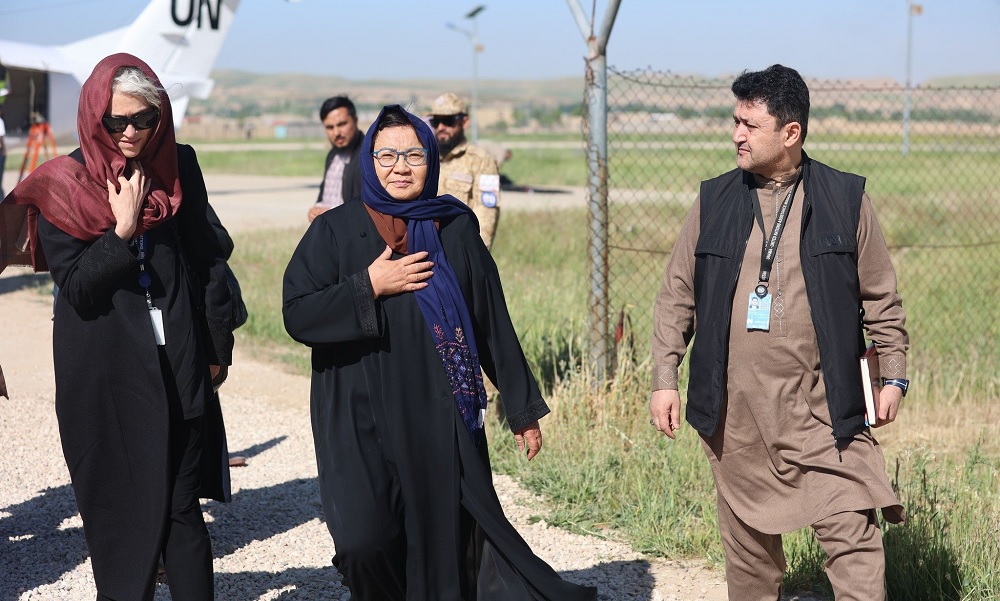
Roza Otunbayeva, Head of the United Nations Assistance Mission in Afghanistan (UNAMA), recently visited the city of Maimana in northern Afghanistan, where she met with local officials, entrepreneurs, and UN staff.
UNAMA wrote on its Facebook page on Sunday, that during the visit, entrepreneurs — including women — met with Otunbayeva, and requested support to facilitate access to new markets, particularly in Uzbekistan.
UNAMA further stated that among these entrepreneurs was a group of women who, with the support of the United Nations Development Programme (UNDP), had established a tailoring workshop.
They expressed their appreciation for the support received and spoke about the significant growth and development of their business.
UNAMA added that the organization remains committed to promoting economic opportunities and empowering Afghan communities, especially women.
Latest News
Senior Indian official meets with FM Muttaqi in Kabul
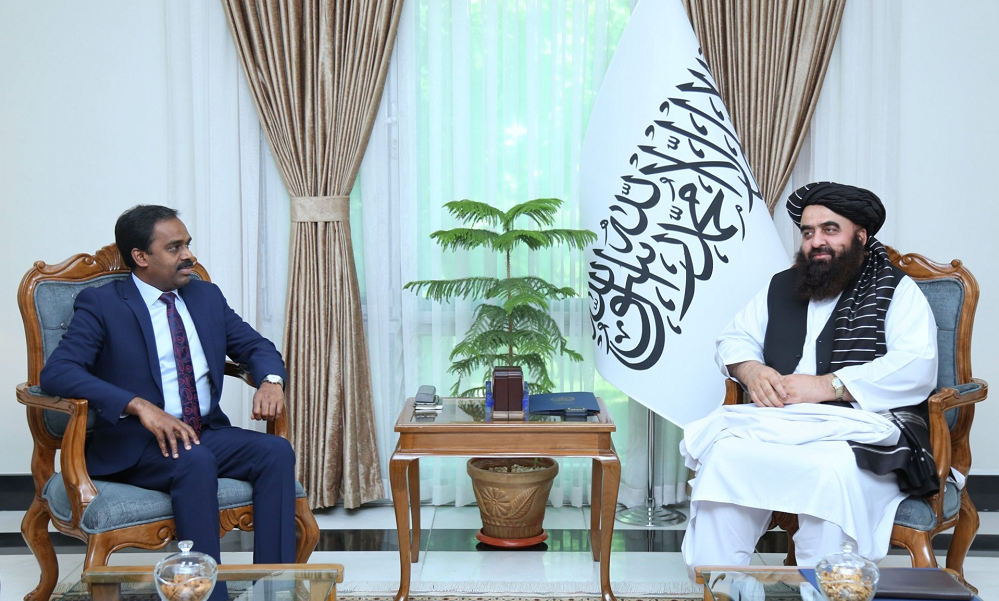
Anand Prakash, head of the Afghanistan, Iran and Pakistan Division of the Indian Ministry of External Affairs, met with Acting Foreign Minister Amir Khan Muttaqi in Kabul for talks on various issues.
According to a press release issued Sunday by the Afghan Foreign Ministry, bilateral political relations, trade, transit and recent political developments in the region were discussed in the meeting.
Muttaqi stressed the need for the expansion of diplomatic and economic relations between the two countries and explained that Afghanistan currently offers favorable opportunities for investment. He said Indian investors should take advantage of these opportunities.
He also said that facilities should be created for the movement of people between Afghanistan and India and the issuance of visas for medical purposes, students and businessmen should return to normal.
Meanwhile, Prakash said that relations with Afghanistan are important for India and he hopes that these relations will expand further in various fields.
He stressed that India will continue its cooperation with Afghanistan and wants to invest in some infrastructure projects and restart projects that were paused for some time.
The two sides also emphasized the expansion of relations, the exchange of delegations, visa facilitation and bilateral cooperation.
Latest News
Afghanistan ‘fully ready’ for Trans-Afghan railway project: Muttaqi
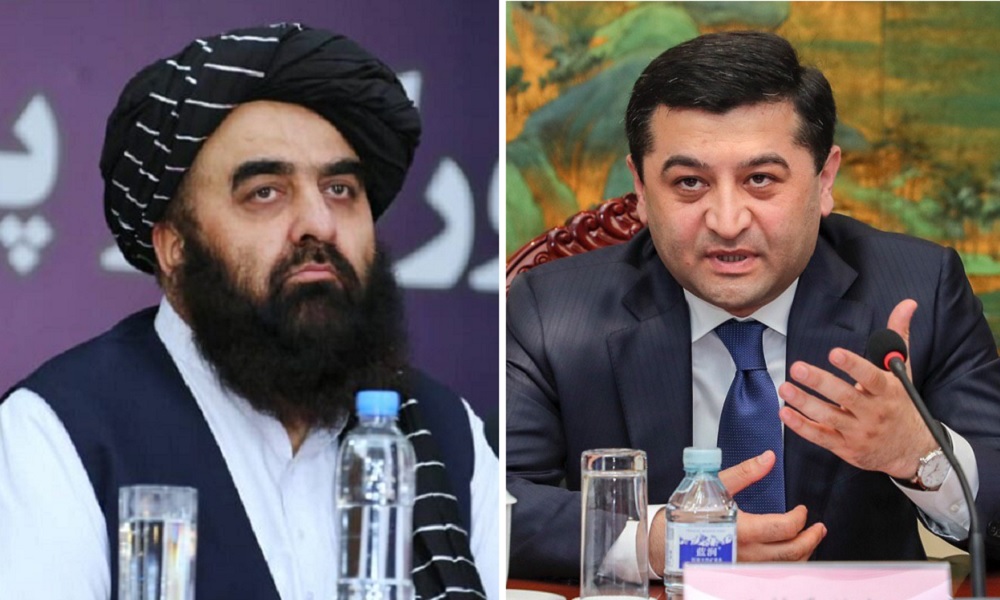
Acting Foreign Minister Amir Khan Muttaqi has said in a phone call with his Uzbek counterpart that Afghanistan is fully prepared for the implementation of the Trans-Afghan railway project.
During the call, the two sides discussed strengthening bilateral and multilateral relations, as well as expanding political, economic and transit cooperation, the Ministry of Foreign Affairs in Kabul said in a statement on Sunday.
Uzbek Foreign Minister Bakhtiyor Saidov noted that Afghanistan’s exports to Uzbekistan have tripled in the first four months of 2025 compared to last year. He vowed to create more facilities in the field of trade and transit between the two countries, especially in issuing visas to Afghan citizens.
Meanwhile, Amir Khan Muttaqi said that Afghanistan is fully prepared for the implementation of major economic projects such as the Trans-Afghan railway project and for the strengthening of political, trade and transit cooperation with Uzbekistan. He said that the existing opportunities should be utilized for the mutual benefit of the two countries.
The two sides also discussed the holding of a trilateral meeting between Afghanistan, Uzbekistan and Pakistan at the level of foreign ministers and agreed to coordinate through diplomatic channels to determine the exact date and place of the meeting.
The three neighboring countries signed an agreement in February 2021 to construct a 573-kilometer railway line through Afghanistan, connecting landlocked Central Asia to Pakistan seaports, with an estimated cost of $4.8 billion to enhance regional economic connectivity.
Pakistan’s Deputy Prime Minister and Foreign Minister Ishaq Dar held a telephone conversation with Uzbek foreign minister last Thursday to discuss the Trans-Afghan railway project.
Dar expressed hope that the three countries would soon sign a framework agreement on this important regional project.
-

 Sport4 days ago
Sport4 days agoSri Lanka A defeats Afghanistan A by 4 wickets in Abu Dhabi
-

 Business5 days ago
Business5 days agoAfghanistan’s growth prospects remain uncertain amid global uncertainty: World Bank report
-
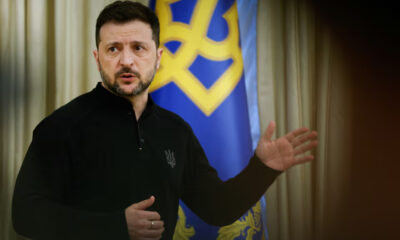
 World5 days ago
World5 days agoUkraine ready to hold talks with Russia once ceasefire in place, Zelenskiy says
-

 Latest News4 days ago
Latest News4 days agoAWCC activates new site in Nangarhar’s Kuz Kunar district
-

 Latest News4 days ago
Latest News4 days agoTarig Ali Bakheet and Japan’s Deputy Foreign Minister discuss Afghanistan’s situation
-

 Climate Change4 days ago
Climate Change4 days agoPowerful earthquake of 6.2 magnitude shakes Istanbul
-

 Business4 days ago
Business4 days agoPakistan’s deputy PM discusses Trans-Afghan Railway Line project with Uzbek FM
-

 Latest News4 days ago
Latest News4 days agoSpecial meeting will be held to launch Afghanistan–Russia joint commission, says Kabulov


